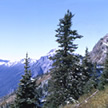| Report Documents
|
|
|
| |
| Map Plotfiles
|
-
No files of this type available
|
| |
| Data Files
|
-
No files of this type available
|
| |
| Digital Map Files
|
-
No files of this type available
|
| |
| Image Document
|
-
No files of this type available
|
| |
| Video Files
|
-
No files of this type available
|
| |
|
All Documents
|
|
|
| Contact
|
|
-
If you have any questions on the information presented, or require additional report data or attachments, please contact the Report Contact
|
|
|
This project continues a long relationship between the Natural Resources and Environmental Studies Institute (NRESi) at UNBC and the Peace Regions Fish and Wildlife Compensation Program (FWCP) (previously B.C. Hydro) with the successful delivery of five research colloquium presentations. These presentations provided an education and outreach venue where we could discuss emerging research projects and the current state of knowledge on natural resource issues relating to the FWCP Peace region.
|
Author: Al Wiensczyk, Dr. Art Fredeen
|
Old Reference Number: PEA-F21-W-3173
|
Old Reference System: FWCP - Fish Wildlife Compensation Program Peace
|
Date Published: Mar 2021
|
Report ID: 59159
|
Audience: Government and Public
|
The presentations provided an opportunity to develop relationships between UNBC and local stakeholders and to assess current FWCP information needs. The project addressed the FWCPs strategic objective of Community Engagement, to increase community engagement by building and maintaining relationships with stakeholders and aboriginal communities and aligns with Section 4.3 Stewardship & Education in the FWCP Peace Basin Plan.
Due to COVID19 restrictions all presentations were delivered online via Zoom Webinar. Dr. Scott McNay (Wildlife Infometrics Inc.) presented on Navigating the uncertain and difficult road to restoration and recovery of Klinse-Za caribou, on November 18, 2020. The presentation was well attended with 117 people participating online. The topic presented was on a project funded by the Peace Regions Fish and Wildlife Compensation Program. The second presentation, which was also based on a Peace Region FWCP funded project was delivered on January 20, 2021. John Hagen (Independent consultant) presented on Status and critical habitats for Bull Trout in the Williston Reservoir watershed. This talk was attended by 81 people. The third presentation occurred on February 10, 2021 and was delivered by Rich Weir (BC Ministry of Environment and Climate Change Strategy). His talk, to 84 attendees, was titled, A tale of two populations: Why are fishers in the Peace different from 200 km away. His talk focused on the results of his Peace Region FWCP-funded research project. On March 10, 2021, Dan Kraus (Nature Conservancy of Canada) gave the presentation, Dammed if we dont: Exploring opportunities to restore connectivity in rivers and streams and why it matters to 82 attendees. It should be noted that 1 of these attendees was actually a grade 11 class from a high-school in Fort St John, BC. The final presentation was held on March 24, 2021. Dr. Eric Taylor (UBC) presented to 39 attendees on Genomic analysis within Salvelinus; understanding speciation and information management. All of the presentations generated many questions and interesting post-presentation discussions. One of the benefits of the online delivery mechanism for these presentations was that attendees were able to join in from wherever they are located, with no need to travel to attend. In addition, we were able to have speakers present from wherever they were. For example, Dan Kraus
3
presented from his home in Ontario and Dr. Eric Taylor from his office at UBC in Vancouver. However, one of the challenges of this format is the lack of one-on-one attendee/speaker interaction that can sometimes occur following in-person presentations. Future presentation topics should continue to incorporate suggestions for presentation content from First Nations as well as continuing to include previously funded Fish and Wildlife Compensation Program - Peace Region project results. Twenty presentations have been delivered over the past 5 years of this project, 6 in Mackenzie, 5 in Fort St John, 4 in Prince George, and 5 online. Nine presentations were on Fish and Wildlife Compensation Program-funded research/community projects. Presentation topics included Caribou (3), Moose (1), Amphibians (1), Small mammals (2), General Wildlife (2), Birds (3), Fish (6), Mercury (1) and Dams (1). Future presentations should also include topics that educate stakeholders on emerging issues within the FWCP Peace Region landbase, including networking to UNBC faculty with research interests in the topic area, provide examples of fish and wildlife management from other jurisdictions that are directly applicable to the FWCP Peace Region landbase, and incorporate regionally appropriate topics for presentations in each of Prince George, Mackenzie, and Fort St. John. Participation by Fish and Wildlife Compensation Program Peace Region Board, First Nations Working Group and technical committee members should be encouraged.
|
Report Type
|
|
